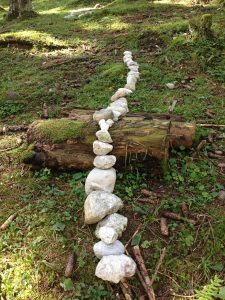
What Is Disenfranchised Grief?
Some grief is loud. Other grief goes unnoticed—even by ourselves.
Disenfranchised grief is loss that society refuses to name. No flowers. No sympathy cards. No space to say: ‘This hurts…’
It’s the quiet ache of what could have been—futures imagined but not lived. Maybe it’s the grief of struggling to have children, the end of a friendship that no one else understood, or the sharp edge of feeling left behind while life moves on around you.
These losses don’t come with rituals. There is no language for them. But they shape us just the same.
Sometimes this grief arrives quietly, disguised as numbness or self-doubt. You may find yourself wondering why a change you chose—a move, a new job, a breakup—has left you feeling more lost than free.
Or maybe it’s the steady, confusing sadness of not knowing who you are anymore. A disconnection from the parts of yourself that used to feel solid.
We rarely talk about how grief can live inside identity—how losing a hoped-for future can leave us unsure of our place in the present.
The Unseen Losses That Shape Us
Fertility struggle can feel like quiet, unseen grief. It’s full of waiting, of trying, of silence—of feeling lost in hope and despair simultaneously. And often, of shame. It’s grief that reshapes how you see your body, your relationships, your future, and your sense of self. And because it’s rarely named in the open, it feels taboo, hidden and we can find ourselves feeling isolated, disconnected, not “part of the club”.

The same is true for other invisible losses:
- The version of yourself you thought would thrive in a career you now dread.
- The disorientating loneliness of feeling like a stranger in your own life after parenthood.
- Watching the parent you knew fade, while the world calls it ‘normal’.
- The life you imagined with someone who is no longer in it.
- The deep ache of missing something that maybe never was—and still matters.
Why Unnamed Grief Hurts Differently
There’s no rulebook for this kind of loss. And often, people around us don’t know how to respond. They might try to help us move on too quickly, or brush past the discomfort with platitudes:
"Everything happens for a reason,"; "You’ll find something else"; "At least you have..."  But the truth is, some things can’t be replaced.
But the truth is, some things can’t be replaced.
And they don’t need to be, they need to be given space, to not hide in the shadows. To enable us to be human and feel “allowed” our experience.
How to Honour Grief With No Name
Sometimes, what we need most is permission to sit with the scary unknown or what’s gone. To let ourselves name it, even if no one else understands. Because naming it is how we begin to feel seen again, without having to push down our deep grief, without needing to filter or mask. 
In therapy, I often sit with people who are grieving things they didn’t know they were allowed to grieve. We go gently. We gather the pieces. We make room for both loss and life.
This kind of grief doesn’t always show up as tears. Sometimes, it looks like going through the motions, pulling away from others, or feeling irritated by things that once brought joy.
Listen To Your Body's Grief
It might show up in your body—as tiredness, tension, or a sense that something is off , but hard to name. 
You might find yourself endlessly comparing your life to others’, wondering if you’ve somehow missed a mark you were meant to meet. Or you might feel like, you are in a glass bubble, on the outside, looking in at life.
Create Space For Unseen Grief
This might look like therapy, journaling, or one trusted person, who can turn the unseen into witnessed.
Offering a space to pause and gently sit with what’s been lost—even if no one else sees it. 
It’s not about rushing to rebuild, but about making sense of how your loss has shaped your story.
And from there, beginning to feel a little more connected to yourself, and how this loss journey can take a new shape into your story.
If you’re feeling disconnected from who you are—if a change or a quiet loss has left you adrift—you are not broken. You’re in the middle of something tender. And you don’t have to make sense of it all at once.
You could start by naming what hurts. Even softly. Even just to yourself.
If you can’t find the words yet, know that your pain is valid.
If you're holding a loss that feels too heavy to name, I aim to offer a space for you to feel fully seen. I'll be alongside you, no platitude, just a steady witness to honour the weight and to start rebuilding the broken pieces.